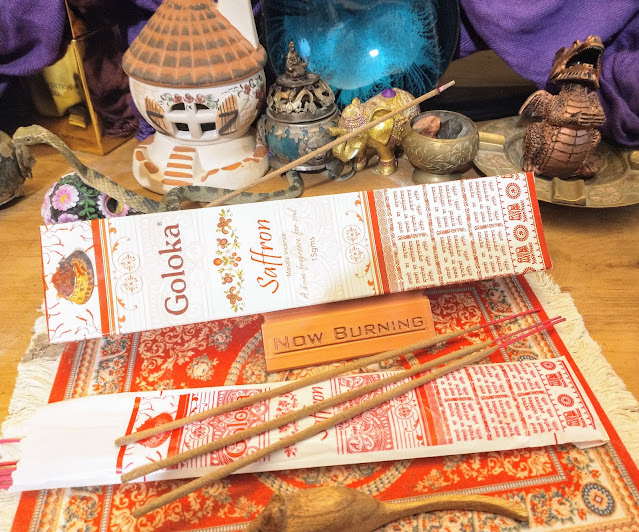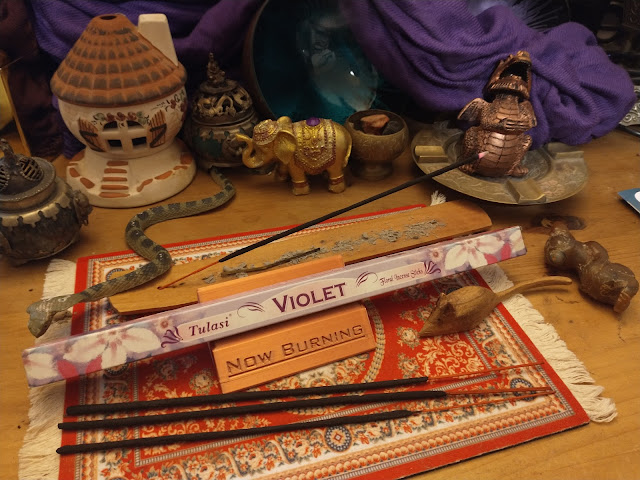A fairly typical decent masala incense. It has the standard "masala" fragrance, which is recognisable to all burners of masala incense, and which tends to dominate most masala incense. I like the masala aroma, though do find that because of it a lot of masala scents end up in a fairly narrow band. It appears to me that the additional ingredients which go into a masala paste assert themselves in the burn so that the intended fragrance, in this case the saffron, kind of struggle to be seen as the forefront of the aroma. Saffron is, anyway, a delicate kind of scent. And is silly expensive. We have used saffron in cooking, though given the price I prefer using turmeric, which gives a similar, albeit slightly more earthy, more bitter, and less sweet result. I somehow doubt that Goloka have used genuine saffron in this incense. Certainly not in sufficient quantities to make the scent be noticed above the other ingredients, particularly the halmaddi, which is really the backbone of the scent here. Since learning about the use of vanilla crystals and other fixatives in perfume and incense production, I am becoming aware that some masala incenses which have a softer, sweeter base which allows the intended aroma to display itself without hindrance are likely to be the ones that use other fixatives than halmaddi, and are the ones that I am more likely to enjoy.
This stick has a pleasant aroma on the stick - mildly sweet, softly creamy, soapy, vaguely room freshener tones, with some soft woody spice. I like it. The key aroma ingredient in saffron is widely regarded as saffronal, which appears in other plants such as wolfberry and elderberry; though other minor active ingredients, such as lanierone, are also considered to be important, and some scientists consider that the scent may be predominantly produced by lanierone. There is some doubt as to what the actual aroma of saffron is as individuals perceive it in different ways. Though if push came to shove, I would say that what I perceive on this stick I would accept as a saffron scent.
This stick has a pleasant aroma on the stick - mildly sweet, softly creamy, soapy, vaguely room freshener tones, with some soft woody spice. I like it. The key aroma ingredient in saffron is widely regarded as saffronal, which appears in other plants such as wolfberry and elderberry; though other minor active ingredients, such as lanierone, are also considered to be important, and some scientists consider that the scent may be predominantly produced by lanierone. There is some doubt as to what the actual aroma of saffron is as individuals perceive it in different ways. Though if push came to shove, I would say that what I perceive on this stick I would accept as a saffron scent.
The scent on the stick is present in the burn, but is dwarfed somewhat by the other masala ingredients. The result is mainly a simple, generic masala scent, though softly, now and then, the saffron scent will drift my way. The melnoorva on the stick has some gold glitter in it. Quite subtly used so it just catches the light now and again.
Overall an acceptable but less than exciting incense.
Overall an acceptable but less than exciting incense.












































